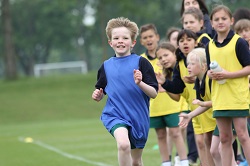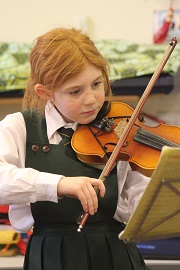Making Mistakes
 Some of the most important inventions have been discovered by mistake; penicillin was the result of someone not cleaning up after themselves, pacemakers came about when the wrong thing was taken out of the tool-box and an engineer once accidentally melted a chocolate bar by standing too close to his equipment, bringing about the microwave.
Some of the most important inventions have been discovered by mistake; penicillin was the result of someone not cleaning up after themselves, pacemakers came about when the wrong thing was taken out of the tool-box and an engineer once accidentally melted a chocolate bar by standing too close to his equipment, bringing about the microwave.
When we are prepared to make mistakes, we become more adventurous in the process, pushing the boundaries of our normal comfort zone and stretching our capacity for learning. When you learnt to ride a bicycle, it was only the moments you wobbled and fell off that helped you master the art of balance.
By providing an environment for young people in which they are comfortable to experiment and where they aren’t frightened to ‘get it wrong’, they are able to make their own discoveries and learn from their own mistakes.
If we always played it safe, we might always ‘get it right’ but once we reach those more momentous landmarks in our life – A Level results, the let-down after a job interview– our ability to deal with the unexpected becomes more difficult.
We can enhance the personal development of young people by removing the fear of failure. Learning to cope with set-backs from an early age helps boys and girls learn quickly from personal mistakes and gives them more confidence with each new challenge they face.
 School is an important place to be able to try without worrying about failing. At Cheadle Hulme School, we give every pupil an opportunity to push themselves without this fear. During a music concert, pupils may hit a wrong note but are able to remain composed and continue, with an understanding that the sky won’t fall in. Those who drop the baton during a relay race know that it doesn’t mean they’ll never be allowed to race again. In fact, the supportive atmosphere that is nurtured through this philosophy often leads to those who come last in a race being given the biggest cheer.
School is an important place to be able to try without worrying about failing. At Cheadle Hulme School, we give every pupil an opportunity to push themselves without this fear. During a music concert, pupils may hit a wrong note but are able to remain composed and continue, with an understanding that the sky won’t fall in. Those who drop the baton during a relay race know that it doesn’t mean they’ll never be allowed to race again. In fact, the supportive atmosphere that is nurtured through this philosophy often leads to those who come last in a race being given the biggest cheer.
The more freedom we are given to make our own mistakes, the more adept we become at realising the scale of their consequences. The outcome of making a mistake in a spelling test doesn’t match that of filling in the wrong information on a tax return form but the earlier we begin to deal with the smaller costs of our errors, the greater care we learn to give to situations with more costly outcomes.
In a world where all our mistakes are automatically pointed out to us by red squiggly lines, we rarely see anything but a polished finished product. Gone are the days of old handwritten manuscripts, complete with crossings-out by the author and proofing marks by the editor. It’s not a perfect world and we can help prepare children for such a world by allowing them the space to make their own mistakes in their quest for perfection.
Where would we be now if the world’s greatest inventors had lived with the fear of making a mistake? New discoveries would have been overlooked, experimentation would have been unthinkable and the most important developments in our understanding of science, technology and the world we live in would still be playing catch-up.






